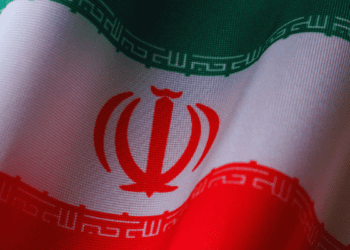 This article originally appeared in the Globe and Mail. The authors will be participating in an MLI webinar on March 11, titled “The West has evacuated the land, but it must not abandon the women of Afghanistan.”
This article originally appeared in the Globe and Mail. The authors will be participating in an MLI webinar on March 11, titled “The West has evacuated the land, but it must not abandon the women of Afghanistan.”
By Khorshied Nusratty and Lauryn Oates, March 10, 2022
On March 8, as the world recognizes International Women’s Day, we would do well to recall the catastrophe that has all too recently occurred in Afghanistan. It has only been six months since the Taliban took back Kabul, a tragic day marked by chaos and terror after a days-long campaign in which province after province in the country fell like dominoes.
The speed and scale at which Afghanistan’s economy has since collapsed has been staggering, even to seasoned observers of the country. The World Food Programme calls Afghanistan “a humanitarian crisis of incredible proportions [which] has grown even more complex and severe since the Taliban took control.” Out of a total population of nearly 40 million, 22.8 million Afghans are now facing acute food shortages, with 98 per cent of the population suffering from lack of access to food, clean water, shelter and basic health care services.
Though all of Afghanistan is suffering, Afghan women and girls are suffering the most. They have been prevented from participating in public life, working or pursuing an education above a sixth-grade level. All of the hard-won gains and civil liberties fought for by Afghan women over the past 20 years have disappeared almost overnight.
Before the Taliban takeover, Afghan women made up over 20 per cent of Afghanistan’s workforce. The United Nations Development Programme (UNDP) found that restricting women’s employment could cost the Afghan economy US$1-billion, further damaging the country’s already stalled economy.
Reports of families selling one child to feed the others, and mothers selling their organs, are measures of the extreme desperation into which people have been plunged after the West abandoned Afghanistan last August.
At the same time, protesters are being hunted down and dissidents disappeared. The once-thriving media sector has shrunken dramatically, most notably in its female representation. Human Rights Watch documented the extrajudicial executions of more than 100 former government officials, despite the Taliban’s promise of amnesty.
These twin crises – the humanitarian catastrophe and the human rights disaster unfolding – are causally linked. The reason that millions of people were suddenly shoved beneath the poverty line is directly attributable to the change in regime that occurred six months ago. Investors fled, businesses shuttered and banks could no longer operate as the economy cratered, and there has been an exodus of professionals and educated people who feared for their lives.
The Taliban’s medieval policies and edicts have brought about social, moral and economic ruin to Afghanistan. In the short term, female breadwinners have lost their employment just because they were women. In the long term, the denial of the right to education for women and girls will have dramatically deleterious effects on the country’s economy and social development.
Making sense of the economic threats Afghans now face also demands acknowledging the relationship between poverty and gender inequity. There may be no group in the world more closely associated with the repression of women than the Taliban; the Islamic State and Boko Haram are close contenders, but the Taliban had mastered misogyny long before either of those terrorist groups ever existed. It is no coincidence that the country now ruled by the Taliban is also the country facing one of the world’s gravest humanitarian crises.
If Canada, and other countries that once invested hundreds of millions of dollars into women’s empowerment programming in Afghanistan, wish to stave off this humanitarian crisis, now is not the time for a quiet about-face on its Feminist International Assistance Policy. Now is the time to support women and girls who are suffering the most and where their rights are most threatened. Right now, and for the foreseeable future, those injustices are occurring in Afghanistan.
Khorshied Nusratty is the president of Artists for Afghanistan Foundation and a former ABC News reporter and Kabul bureau chief for Fox News. Lauryn Oates is executive director of Canadian Women for Women in Afghanistan.




